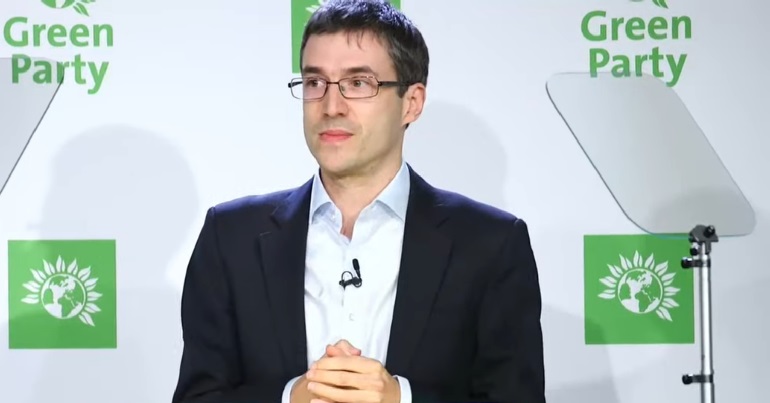The Green Party has taken a big step away from democracy

At its most recent conference in Bournemouth, the Green Party of England and Wales adopted a change to its constitution in motion D28 which would allow the party leadership, in the broadest sense (The Regional Council, the Party Executive) to issue a proposal to the membership to vote on. There would be no opportunity to discuss and debate the proposals, there would be no opportunity to amend the proposals and discuss alternatives.
The Philosophical Basis of the party outlines in PB443 that “We advocate participatory and democratic politics” this proposal runs contrary to that. There is no real opportunity to shape the outcomes of the process. Our participation is limited to simply voting, and as any theorist of democracy will tell you, there is more to democracy than voting. Genuine engagement in democracy requires that people can dissent and propose alternative approaches through amendment. This provides none of that and is antithetical to our principles and the things we hold dear about the party.
Within the party, we are very proud of our democracy, even to the point that it might, in some cases, slow us down. This motion takes that democracy away from our members and gives all the power to those who already have significant opportunities to influence the way in which the party operates. Members are regularly critical of the democratic systems within the Labour party, but these changes are arguably worse than Labour’s democracy.
As part of the debate around our internal democracy we often think about how our current systems compare with other political parties and their approaches. There is no other political party which uses this approach, with good reason. There are however historic precedents for governance in this manner. In the establishment of the Second French Empire, Bonapart III utilised referenda to solidify his position as Emperor of France.
Whilst the conference was, overall, a huge success, the passing of this motion places the party in a very dangerous position and in reality, hands overall control of the party to the central leadership in a completely unprecedented way. Whilst you might like the current people who are in the roles which will influence this, there is nothing to say that they will remain in that position, and someone could come into a role in the future and take wide ranging decisions to make changes and then push them through this process. The proposal treats members as voting fodder to legitimise the diktats of the leadership of the party. We can and should do better.
Image credit: Jon Craig – Creative Commons




I am on the fringe of green party debate I am quite perplexed by the rapid change and woud like to know more about Green ethics, I am agaisnt nuclear power as it causes cancer and there are many alternatives to nuclear power, Zak is a cheerful chap at least I hope green democracy wont be lost, as it’s precious to me that an alternative does exist, I am in favour of LGBTQ and am in favour of peaceful debate too, yours sincerely Ben quail Lowestoft
Where can the text of this motion be read?
When I was there, long ago, I watched the party adopting an Executive on the back of fixing using postal votes brought in on trolleys. The Executive was the first step away from participatory democracy. It is what we have in the European Commission. I left later on when the party began to follow idiots like Monbiot into the nuclear future. I am not impressed by new Zack. As for all this LGBTQ absurdity,it will sink the party unless it manages to progress on the back of being the only alternative to all the other parties. He seems like a nice enough guy. Zack. But no depth. No solidity. And not very clever.
That is terrible, was it voted on? Who specifically proposed it? Was there a policy discussion before it?
Does this new policy run along side existing policy development, debate and democracy already in place within the party and its conference?
The Green party leadership should realise what Socrates knew that the ordinary man / woman was not knowledgeable enough to dictate democracy. The demographics of the Green Party currently if the party sticks to open democracy will ensure the party is doomed to the fringes. The Green’s have some marvelous policies that would enhance our society pragmatics and common sense dictate immigration control has to be on the manifesto to give the party a chance.
Very well said. Democracy in the party is already at an all time low. The motion effectively creates a dictatorship.
That’s what happens when members with less than 2 months membership with no connection with a lcoal party are encouraged to register and excercise their automatic right to vote. For once, I share your concern for the future of our party.
Very good point. It’s at the heart of what we are and different to other parties where the people at the top decide practically everything.
We should go for a different process but what it could be I don’t know.
Maybe we could reject each motion?
We must hang on to the Green Party democratic processes.